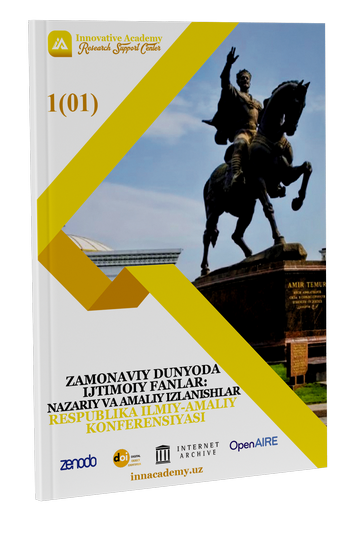AI-SUPPORTED PROBLEM-BASED LEARNING: A PATHWAY TO DEVELOPING STUDENTS’ CRITICAL THINKING ABILITIES
Main Article Content
Аннотация:
The integration of Artificial Intelligence (AI) into education has transformed learning methodologies, particularly in Problem-Based Learning (PBL). This paper explores the impact of AI-assisted PBL on students’ critical thinking development, analyzing both its benefits and potential drawbacks. While AI-driven learning environments provide personalized feedback, enhance engagement, and support deeper problem-solving skills, concerns remain regarding students’ overreliance on AI-generated responses. The discussion highlights the necessity of a balanced approach where AI serves as a cognitive partner rather than an automation tool. The study emphasizes that AI should be designed to challenge students’ reasoning, prompt inquiry, and encourage intellectual growth, rather than replace human thought processes. Ultimately, the effectiveness of AI in fostering critical thinking depends on its pedagogical integration, ensuring that technology enhances independent learning rather than diminishing it.
Article Details
Как цитировать:
Библиографические ссылки:
Darwin, D., Rusdin, D., Mukminatien, N., Suryati, N., Laksmi, E. D., & Marzuki. (2024). Critical thinking in the AI era: An exploration of EFL students’ perceptions, benefits, and limitations. ResearchGate.
Khairi, F., & Alhafidh, F. Y. (2024). Integrating AI Tools in Support of Problem-Based Learning in Higher Education: Strategies, Implications, and Future Directions. DOI:10.13140/RG.2.2.33479.10405.
Lawasi, M. C., Rohman, V. A., & Shoreamanis, M. (2024). The Use of AI in Improving Student’s Critical Thinking Skills. DOI:10.30595/pssh.v18i.1279.
Musali, S., & Vermeulen, M. (2024). AI-Driven Learning: Enhancing Critical Thinking Through Technology-Integrated Pedagogy. DOI:10.13140/RG.2.2.31693.45285.
Murphy, O. (2024). Investigating the relationship between problem-based learning and critical thinking skills: A longitudinal study. Higher Education Research & Development, 41(5), 893-910.
O’Brien, K. (2024). Enhancing problem-based learning through digital tools: A systematic review. Journal of Computer Assisted Learning, 40(3), 309-326.
Liu, W., & Wang, Y. (2024). The Effects of Using AI Tools on Critical Thinking in English Literature Classes Among EFL Learners: An Intervention Study. European Journal of Education, 59(e12804). DOI:10.1111/ejed.12804.
Thompson, C. (2021). Enhancing problem-based learning through digital storytelling: A case study in education literature. Journal of Digital Learning in Teacher Education, 37(2), 148-162.
Çela, E., Fonkam, M., & Potluri, R. M. (2024). Risks of AI-Assisted Learning on Student Critical Thinking. International Journal of Risk and Contingency Management, 12(1), 1-19. DOI:10.4018/IJRCM.350185.
Zhou, W. (2021). The impact of problem-based learning on student critical thinking skills: A longitudinal study. Higher Education Research & Development, 38(6), 1115-1230.
Novtiana, R., & Nuaimah, S. (2025). Implementation Of A Problem Based Learning Model With The Assistance Of AI To Improve Students’ Critical Thinking Abilities And Creativity. DOI:10.22202/mamangan.v12i3.8281.

